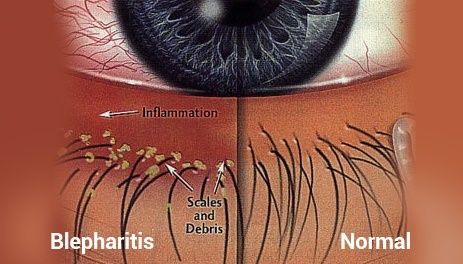Our eyes are not only windows to the soul but also complex organs that are susceptible to various conditions. One common issue that many individuals experience at some point is the presence of mucous discharge from the eyes. While it may seem alarming, understanding the causes and remedies can help manage this discomfort effectively.
What is Mucous Discharge from the Eyes?
Mucous discharge from the eyes refers to the secretion of a thick, sticky substance from the tear ducts or glands around the eyes. This discharge can range from clear and watery to yellowish or greenish in color, depending on the underlying cause. It may accumulate in the corners of the eyes, causing crustiness and discomfort, particularly upon waking up in the morning.
Common Causes of Mucous Discharge from the Eyes:
1. Conjunctivitis (Pink Eye): One of the most common causes of mucous discharge is conjunctivitis, commonly known as pink eye. This condition can be viral, bacterial, or allergic in nature. Bacterial conjunctivitis often presents with yellow or green discharge, while viral conjunctivitis may produce clear or watery discharge.
2. Dry Eye Syndrome: Insufficient tear production or poor tear quality can lead to dry eye syndrome, characterized by irritation, redness, and a gritty sensation in the eyes. In response to the dryness, the eyes may produce excess mucous to lubricate the surface, resulting in discharge.
3. Allergies: Allergic reactions to pollen, dust, pet dander, or other environmental allergens can cause the eyes to become red, itchy, and watery. In some cases, this allergic response can trigger the production of mucous discharge.
4. Blepharitis: This inflammatory condition affects the eyelids, causing redness, swelling, and irritation. It can lead to the accumulation of crusty debris and mucous along the eyelid margins, particularly upon awakening.
5. Blocked Tear Ducts: Blockages in the tear ducts can disrupt the normal drainage of tears, leading to excessive tearing and mucous discharge. This condition, known as epiphora, can occur due to congenital abnormalities, infections, or structural changes in the tear ducts.
6. Conjunctival Irritation: Exposure to irritants such as smoke, smog, or chemical fumes can irritate the conjunctiva, the thin membrane covering the white part of the eye. In response, the eyes may produce excess mucous as a protective mechanism.
Treatment and Management:
The appropriate treatment for mucous discharge from the eyes depends on the underlying cause. In many cases, self-care measures and over-the-counter remedies can provide relief. These may include:
– Warm Compresses: Applying a warm compress to the eyes can help soothe irritation, loosen crusts, and promote tear production.
– Artificial Tears: Lubricating eye drops or artificial tears can help alleviate dryness and reduce mucous discharge associated with dry eye syndrome.
– Antihistamines: Over-the-counter antihistamine eye drops or oral medications can be effective in managing allergic conjunctivitis and reducing mucous production.
– Eyelid Hygiene: Practicing good eyelid hygiene, such as gently cleaning the eyelids with warm water and mild soap, can help prevent the buildup of crusts and debris associated with blepharitis.
– Prescription Medications: In cases of bacterial conjunctivitis or severe eye conditions, prescription antibiotics or anti-inflammatory medications may be necessary.
– Tear Duct Massage: Massaging the tear ducts can help alleviate blockages and promote proper drainage of tears. This technique should be performed under the guidance of a healthcare professional.
When to Seek Medical Attention:
While mucous discharge from the eyes is often benign and self-limiting, certain symptoms may indicate a more serious underlying condition. Seek medical attention if you experience any of the following:
– Severe eye pain or discomfort
– Vision changes or blurriness
– Persistent redness or swelling
– Sensitivity to light (photophobia)
– Green or yellow discharge accompanied by fever
In Conclusion:
Mucous discharge from the eyes can be a bothersome symptom, but it is typically not cause for alarm. Understanding the common causes and implementing appropriate remedies can help manage this condition effectively. However, if symptoms persist or worsen, it is important to consult with a healthcare professional for proper evaluation and treatment. Taking care of your eye health and practicing good hygiene can go a long way in preventing and managing mucous discharge and associated eye conditions.






Recent Comments